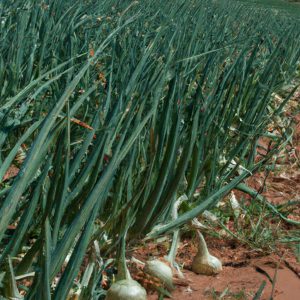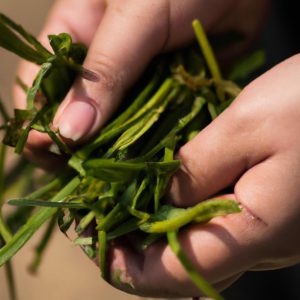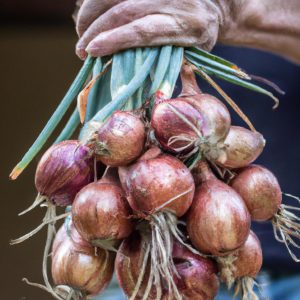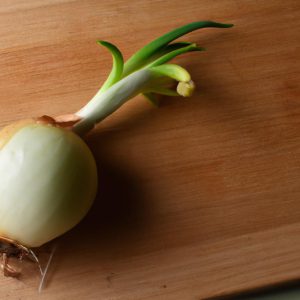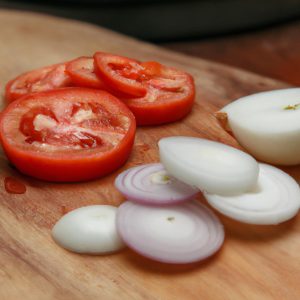Dehydrating onions is an excellent way to preserve them for future use. Not only does it extend their shelf life, but it also concentrates their flavors, making them a versatile and delicious ingredient in a wide range of dishes. However, if you’re new to dehydrating onions, you may be wondering how long it takes to achieve the perfect texture and flavor. In this comprehensive guide, I’ll walk you through everything you need to know about dehydrating onions, including the benefits, the process, and how to determine when they’re fully dehydrated.
Dehydrating onions is an excellent way to save money and reduce food waste. Instead of letting your onions go bad in the pantry, you can dehydrate them and store them for months or even years. Dehydrating also concentrates the flavor of the onions, making them a versatile ingredient in many dishes. They can be rehydrated and used in soups, stews, and casseroles, or ground into a powder and used as a seasoning.
The dehydrating process involves removing the moisture from the onions, which can be done in several ways, including air-drying, using an oven, or using a dehydrator. Each method has its pros and cons, and the time it takes to dehydrate onions will depend on several factors, such as the humidity level, thickness of the onions, and the dehydrating method used. In the following sections, I’ll dive deeper into each of these factors and provide you with tips on how to achieve perfectly dehydrated onions every time.
Prepping Onions for Dehydration

Before you start dehydrating onions, it’s essential to prepare them correctly to ensure that they dehydrate evenly and have the best flavor. Here are some tips for selecting, cleaning and cutting onions for dehydration:
Selecting the Right Onions
When selecting onions for dehydration, it’s important to choose ones that are fresh and free of bruises or blemishes. Sweet onions are an excellent choice for dehydrating because they have a milder flavor and are less likely to cause eye irritation.
Cleaning and Cutting Onions
Once you’ve selected your onions, it’s time to clean and cut them. Start by peeling off the outer layer of skin and removing the root end. Then, cut the onion in half from top to bottom and slice each half into thin, even slices. Alternatively, you can use a mandoline or food processor to slice the onions quickly and evenly.
Tips for Even Slicing
To ensure that your onions dehydrate evenly, it’s essential to slice them consistently. Here are some tips to help you achieve even slices:
- Use a sharp knife: A dull knife can crush the onion and cause uneven slices.
- Slice the onion in half first: Slicing the onion in half before cutting it into thin slices will make it easier to achieve even pieces.
- Use a mandoline or food processor: These tools can help you achieve consistent slices quickly and easily.
By following these tips, you’ll be able to prepare your onions for dehydration like a pro. In the next section, we’ll discuss the different methods for dehydrating onions.
Methods for Dehydrating Onions

Dehydrating onions can be done using three popular methods: air-drying, using an oven, or using a dehydrator. Each method has its advantages and disadvantages, and the choice depends on personal preference and the equipment available.
Air-drying onions
Air-drying onions is the simplest and most natural method of dehydrating. All you need to do is clean and slice the onions, then lay them out on a flat surface, such as a baking sheet or mesh screen. Make sure to keep them out of direct sunlight and in a well-ventilated area. Stir the onions occasionally to ensure even drying. Air-drying can take up to two weeks, depending on the humidity level and thickness of the onions. Onions are fully dehydrated when they are brittle and snap in half.
The benefits of air-drying are that it requires no special equipment and is an inexpensive method of dehydrating. However, it is also the slowest method and may not be suitable for areas with high humidity levels.
Using an oven
Using an oven is a quicker way to dehydrate onions, and it can be done year-round, regardless of the weather. Preheat the oven to 140°F (60°C) and place the sliced onions on a baking sheet lined with parchment paper. Leave the oven door slightly ajar to allow moisture to escape. Stir the onions occasionally to ensure even drying. Depending on the thickness of the onions, dehydration can take anywhere from 4 to 8 hours.
The benefits of using an oven are that it is a quick and efficient method of dehydrating, and it can be done year-round. However, it can be costly as it requires electricity to run the oven.
Using a dehydrator
Using a dehydrator is the quickest and most efficient method of dehydrating onions. Dehydrators are specifically designed to remove moisture from food, and they come with adjustable temperature and time settings. Slice the onions and place them on the dehydrator trays, making sure to leave space between them for air circulation. Set the temperature to 135°F (57°C) and let the dehydrator do its job for 6 to 12 hours, depending on the thickness of the onions.
The benefits of using a dehydrator are that it is a quick and efficient method of dehydrating, and it produces consistent results. However, dehydrators can be expensive and take up counter space.
Factors Affecting Dehydration Time

When it comes to dehydrating onions, several factors can affect the time it takes to achieve the perfect texture and flavor. In this section, we’ll explore some of the most significant factors that can impact dehydration time.
Humidity Levels
Humidity levels can significantly impact the dehydration time of onions. If you live in a humid climate, it can take longer to dehydrate onions because the air is already saturated with moisture. On the other hand, if you live in a dry climate, the onions will dehydrate more quickly. To speed up the dehydration process, you can use a dehumidifier or an air conditioner to reduce the humidity level in the room.
Onion Thickness
The thickness of the onions also plays a critical role in dehydration time. Thinly sliced onions will dehydrate more quickly than thickly sliced onions. It’s essential to slice the onions evenly to ensure they dehydrate at the same rate. If you’re using a dehydrator, follow the manufacturer’s instructions for the recommended thickness.
Dehydrating Method Used
The dehydrating method you choose can also affect the dehydration time of onions. Air-drying onions can take several days, while using an oven or dehydrator can take several hours. However, each method has its pros and cons, so it’s essential to choose the method that works best for you.
Tips for Determining When Onions are Fully Dehydrated
To determine when onions are fully dehydrated, there are a few tips to keep in mind. First, the onions should be completely dry and crisp to the touch. They should not feel leathery or have any moisture left. Second, the onions should be brittle and break apart easily. If the onions bend instead of breaking, they are not fully dehydrated. Finally, the onions should have a deep, concentrated flavor. If they taste bland or have a hint of moisture, they are not fully dehydrated. By following these tips, you can ensure that your onions are perfectly dehydrated every time.
Storing Dehydrated Onions
Once your onions are fully dehydrated, it’s essential to store them properly to maintain their quality and flavor. Here are some tips on how to store dehydrated onions:
Proper Storage Techniques
- Store dehydrated onions in an airtight container, such as a glass jar or plastic bag with a zipper seal.
- Keep the container in a cool, dry, and dark place, such as a pantry or cupboard.
- Avoid storing dehydrated onions in the refrigerator or freezer, as the moisture can cause them to spoil and lose their flavor.
Shelf Life of Dehydrated Onions
Dehydrated onions can last for several months to years if stored properly. However, their shelf life can vary depending on the storage conditions and the quality of the onions. Here are some general guidelines for the shelf life of dehydrated onions:
- Stored in an airtight container in a cool, dry, and dark place: up to 6 months
- Vacuum-sealed and stored in the freezer: up to 2 years
It’s always best to use your senses to determine if dehydrated onions are still good to use. If they have an off smell or flavor, or if they appear discolored or moldy, they should be discarded.
Tips for Using Dehydrated Onions in Recipes
Dehydrated onions can be used in many recipes, such as soups, stews, casseroles, and dips. Here are some tips for using dehydrated onions in your favorite recipes:
- Rehydrate dehydrated onions before using them in recipes that require sautéing or simmering. Soak them in warm water or broth for 10-15 minutes, or until they are soft and plump.
- Use dehydrated onions as a seasoning in dishes such as meatloaf, burgers, and marinades.
- Grind dehydrated onions into a powder using a spice grinder or food processor. Onion powder is a convenient and versatile ingredient that can be used in many recipes, such as dry rubs, seasoning blends, and salad dressings.
By following these storage and usage tips, you can enjoy the benefits of dehydrated onions for months to come.
Conclusion
In conclusion, dehydrating onions is a great way to preserve them for future use while also concentrating their flavors. By selecting the right onions, properly preparing them for dehydration, and using the right method, you can achieve perfectly dehydrated onions every time. Remember to consider factors such as humidity levels, onion thickness, and dehydrating method when determining how long to dehydrate onions.
Storing dehydrated onions properly is also essential to ensure they last as long as possible. Use airtight containers, and store them in a cool, dry place away from sunlight. Dehydrated onions can be stored for months or even years, making them a convenient ingredient to have on hand.
At onionfacts.com, we’re committed to providing you with the most comprehensive and accurate information about onions. We hope this guide has been helpful in answering your questions about how long to dehydrate onions. If you have any further questions or comments, please don’t hesitate to reach out to us. Happy dehydrating!

